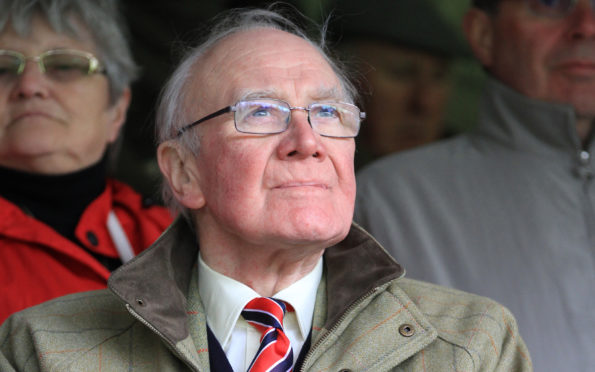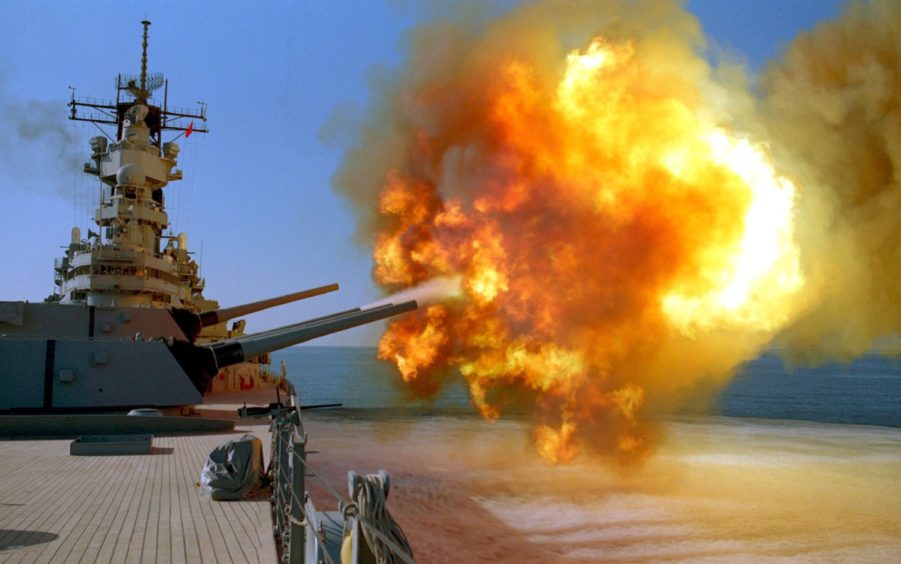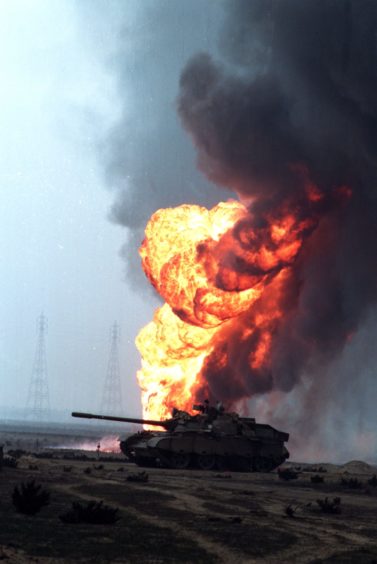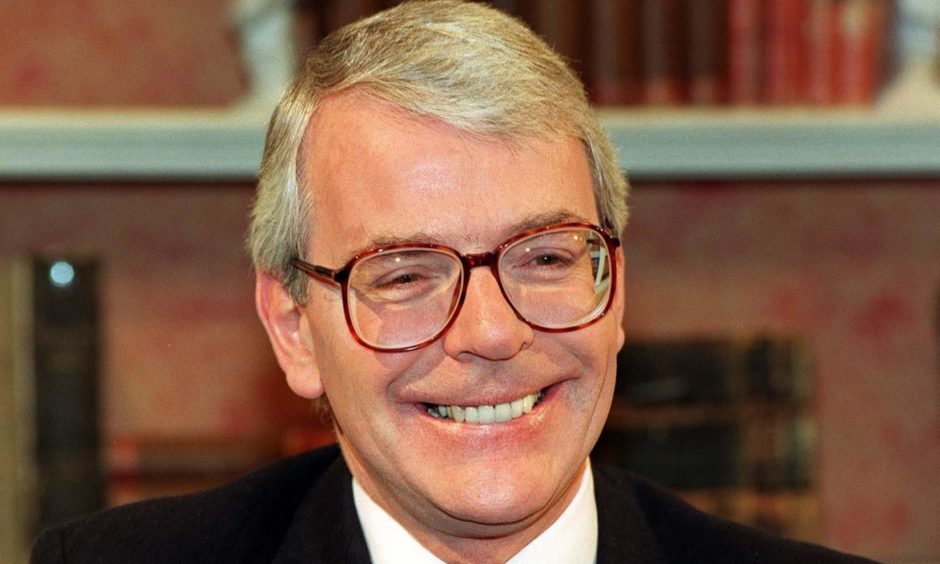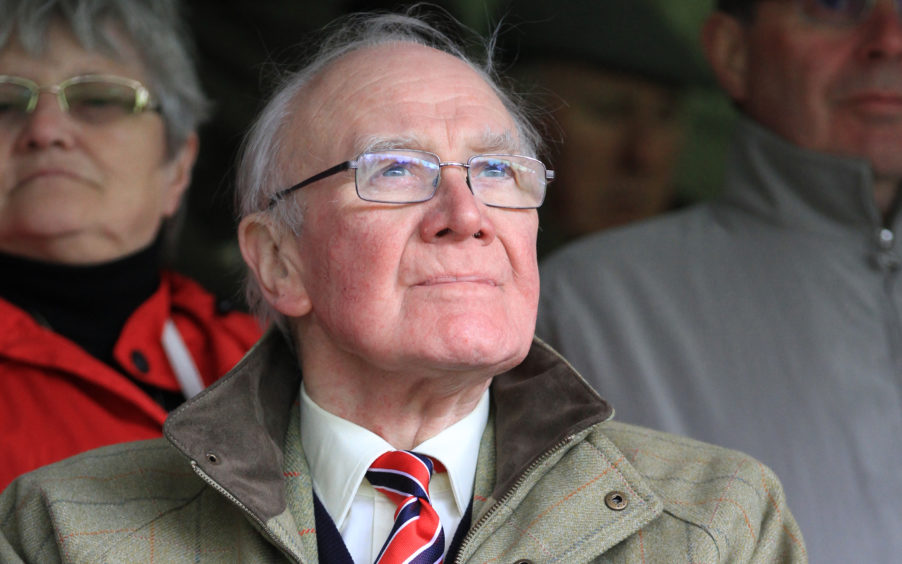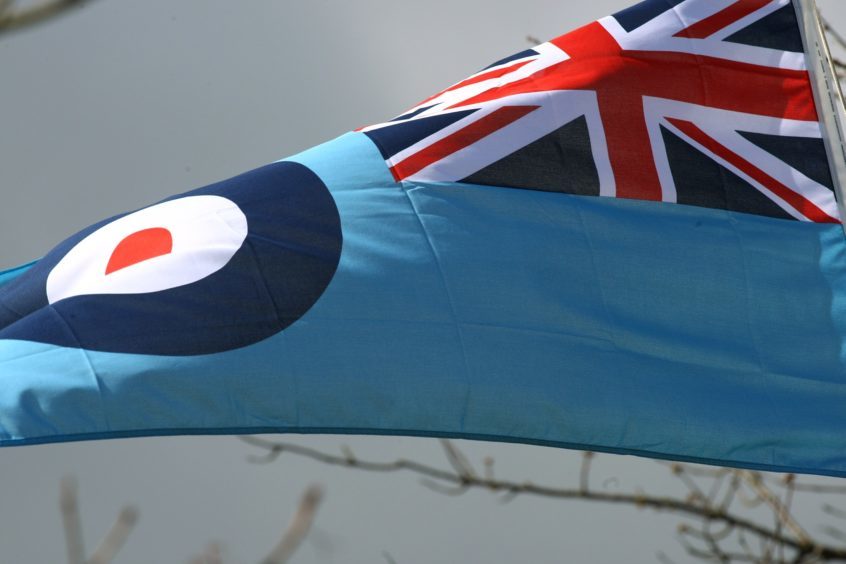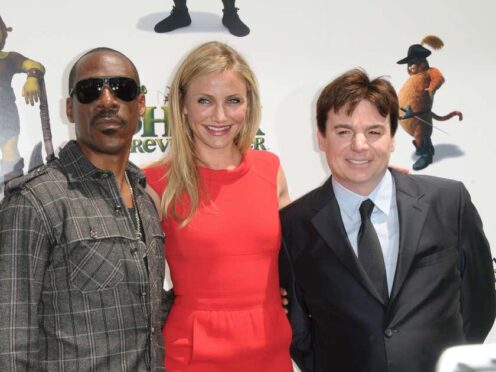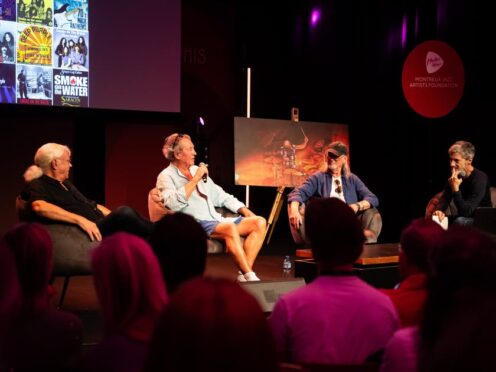The pursuit of defeated Iraqi troops at the end of Operation Desert Storm 30 years ago was ‘like shooting fish in a barrel’, according to former North East Fife MP Lord Menzies Campbell.
In an exclusive interview with The Courier to mark the 30th anniversary of Desert Storm, the 79-year-old who is now Baron Campbell of Pittenweem, said a big question at the time was whether after expelling Iraqi troops from Kuwait, Allied forces should push on to take the Iraqi capital Baghdad.
But amid serious uncertainty about what they would do when they got there, Lord Campbell recalled there was also growing concern about the ill-equipped Iraqi conscripts making up the bulk of the Iraqi forces on the ground and the morality of taking them on with the full force of Allied military might.
Use of teenage conscripts
“The military side of Desert Storm was over in a matter of weeks with the Iraqis expelled and Kuwait’s borders secured,” said Lord Campbell.
“But what Saddam Hussein did was he kept the Republican Guard close to Baghdad to defend him.
“What they did was they put conscripts in the front trenches.
“When the (Allied) tanks went in with the infantry, these were 18 year old kids. A huge number of them were sacrificed.
“I think there was some anxiety from the point of view of the Allies that the opposition they were up against – in many cases they were desperate to put their hands up and surrender – weren’t supplied, didn’t have proper food and ammunition.
“Sympathetic is the wrong word, but the Allies had some reservations about how hard they could go against them once they discovered how poorly led and equipped they were.”
Why was Desert Storm deemed necessary?
Operation Desert Storm began in the early hours of January 17 1991 when American, British, French, Saudi and Kuwaiti Allies launched an offensive to destroy Iraq’s military and civilian infrastructure through an enormous aerial bombing campaign aimed at military and strategic targets.
The trigger for the Gulf War was Iraq’s invasion of Kuwait on August 2, 1990 when it attempted to seize Kuwait’s vast oil reserves and relieve Iraq of crippling debts accrued during the Iran-Iraq War.
When Iraq refused to comply with a UN ultimatum for its troops to withdraw from Kuwait by January 15, the Allies launched a devastating and sustained aerial bombardment.
After a month of more than 2,250 coalition aircraft flying in excess of 1,000 sorties a day, the Allies launched a land offensive on February 24.
Within a day, the Iraqis began retreating and on February 27 American President George Bush declared victory.
Lord Campbell recalled how there was a big debate politically and militarily once it was clear that Iraq was defeated as to whether the Allies should make their way to Baghdad.
“Someone coined the phrase ‘yes we can get to Baghdad but what will we do when we get there?’” he said.
Lessons learned or mistakes repeated?
It was of course an issue that resurfaced 12 years later when another Bush president, George W, launched the second more controversial Gulf War –deciding to invade Iraq amid the debate about alleged weapons of mass destruction and toppling Saddam from power.
Within a month of that conflict, Saddam Hussein had been ousted and the Americans were claiming victory in what many to this day see as an “illegal” war.
But one of the reasons George W’s father George Bush called a halt in 1991, said Lord Campbell, was that during the retreat from Kuwait to Iraq, Iraqi troops were being massacred while using a single highway to escape.
“There were traffic jams on the road from Kuwait to Iraq,” recalls Lord Campbell, “and it was said, although it was never proved, that some of the American pilots who shot up these convoys came back and said they were never going to do it again because they were killing people in such a terrible way.
“There were terrible photographs of burnt out lorries. It was a charnel house. And Bush said I won’t go.
“What then happened was Bush came under a lot of criticism.
“But (British PM) John Major who was party to that decision mounted a very strong defence of that decision in the ground in his memoirs.
“Of course we went back again 12 years later – and look what happened!”
Unexpected introduction to international diplomacy
Few positives come from war, but when Lord Campbell reflects back on the 1990/91 conflict, he does manage to raise a smile when he thinks about how the military build up to the combat phase of the first Gulf War gave him an unexpected introduction to international diplomacy as the then “wet behind the ears” defence spokesperson for the Liberal Democrats.
He explained how he found himself touring the Allies’ military build-up in the Middle East – and a highlight was an unexpected early morning summons to visit the Saudi Arabian king.
Lord Campbell, who was North East Fife MP from 1987 to 2015 didn’t sit on the Commons’ defence committee at the time.
However, after Iraq’s invasion of Kuwait on August 2, 1990, and before the launch of the Allied offensive on January 17 to repel the invaders, he was invited along as part of a delegation to visit British forces.
In the early hours of the morning shortly before they were due to fly back to the UK on a VC10, the delegation received an unexpected summons to the Saudi royal palace.
“At about 2.30am there’s a knock on my door,” recalled Lord Campbell.
“It’s the number two from the British embassy who said ‘please get up and get dressed and put on a suit and tie, because the king of Saudi Arabia has just agreed to see the delegation’.
“We were driven through the deserted streets of the capital to the king’s palace where the king and eight to 10 members of the royal family were sitting round a table.
“The king through an interpreter then spoke for around an hour about the issues raised by Saddam, about getting Kuwait back.
“Then we are all invited to make a contribution – including me wet behind the ears in defence. That was the most bizarre part of the trip and needless to say I’ve never had the opportunity of addressing the Saudi royal family again!”
Moral boost to Leuchars families
During the trip, Lord Campbell visited the Allied air operations HQ in the desert.
So when he visited The Hive at RAF Leuchars after the invasion on January 17, and met with the wives and families of some of the 43(F) Squadron personnel by this time serving in the Gulf, he was able to give a first hand account of the “good spirits” of the Allied command on the ground.
The then station commander had asked Lord Campbell to bring his wife Elspeth with him to Leuchars for added moral support.
In an era before mobile phones and internet, he remembers families using thin blue air mail paper to write to their loved ones against a huge backdrop of uncertainty about how and when hostilities would end.
He was pleased to offer any comfort that he could.
- Here, 30 years after the launch of Desert Storm to oust invading Iraqi forces from Kuwait, a record breaking former RAF Leuchars fighter pilot who served in both Gulf Wars speaks to The Courier about his experiences. See also The Courier Weekend magazine of January 16 2021.
